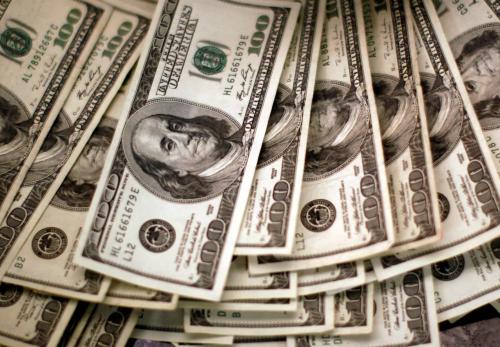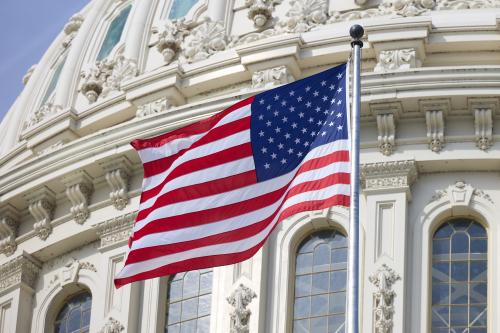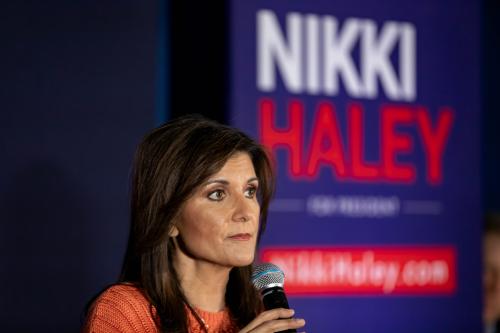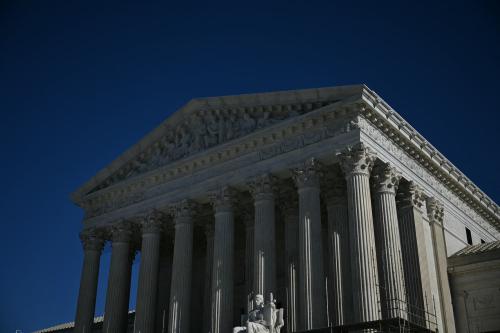In Nevada, on February 6, “None of these candidates” won the Republican primary — with former Ambassador Nikki Haley coming in second with 30.5% of the vote. And on February 8, it is very likely that former President Donald Trump will win the Nevada caucuses. Confused?
This is the first time that Nevada has a state-run primary in the 21st century. Nonetheless, the Republican State Party decided not to use it. Instead, they will hold a caucus to elect delegates and ruled that anyone who ran in the primary would be disqualified from running in the caucus. Thus, in Nevada, Haley was the only major candidate (who has not dropped out) on the primary ballot, and Trump will be the only major candidate in the caucus contest. Because the Nevada Republican Party decided that the caucus would determine the delegates, Trump will win all of them.
As if this isn’t confusing enough — believe it or not, the Republican confusion in Nevada started four years ago during the Democratic caucuses in Iowa. There, the state party experienced a massive and embarrassing meltdown in vote counting. The Iowa experience reinforced an emerging consensus in the Democratic party that a state with a caucus system should not be first in the nation. Caucuses were too convoluted and too restrictive to be first in the nation. For instance, participation was limited to those who could spend a few hours at a meeting on a Monday night and there were no established procedures for recounts. A consensus developed that a caucus state should not go first in the nation.
Meanwhile, in Nevada, the Democrats, led by the legendary and late Senator Harry Reid, had been jockeying to be first in the nation for decades. After the 2020 meltdown in Iowa, they realized that any caucus system — theirs included — was unlikely to be awarded first in the nation status. And in 2016, the state Republican caucuses were a chaotic mess, with reports of long lines and double voting — leaving Republicans not especially pleased with the caucus system either. So, in 2021, the Democratic legislature passed, and the Democratic governor signed, a bill creating a 2024 presidential primary.
However, the bill provided that parties didn’t have to use the primary results to allocate delegates — something that was really unnecessary and that has been true forever. In fact, until the Democratic reform movement in the early 1970s, most primaries did not award delegates — they were “beauty contests” only. Political parties have always had the right to choose how they elect delegates subject to party rules. Anyway, after some wining and dining at Mar-a-Lago, Trump’s lavish home in Florida, the leaders of the Nevada Republican party promised they could guarantee him all the delegates by ignoring the primary and holding a caucus. The party set up rules for who could run in the caucuses — a candidate could not run in the primary and had to at the same time pay a $55,000 fee.
And so, to the confusion of many and the consternation of some, the Nevada contests being held this week are turning out to be a big nothing — which is probably just as well, since too much of a spotlight on Nevada would reveal that the Republican Party there is a mess. There are two party leaders under indictment for participating in a false elector scheme dating back to the 2020 elections. Stories of leadership struggles between Trump radicals and party traditionalists, including empty bank accounts and sexual misbehavior, plague Republican state committees in other key swing states as well, including Michigan, Arizona, Colorado, and Minnesota.
At the Republican National Committee (RNC) winter meeting, a beleaguered Ronna McDaniel — Trump’s hand-picked party chair — found herself having to defend her job and explain why the RNC had less than half of the necessary “cash in hand” than the DNC (Democratic National Committee) going into a presidential election year.
Of course, there’s plenty of time to right the ship before November, when the state parties play a crucial role in getting out the vote. Nonetheless, Trump’s Republican Party in a number of states looks a little like Haley’s critique of him — chaotic, disorganized, and not very fair.
The Brookings Institution is committed to quality, independence, and impact.
We are supported by a diverse array of funders. In line with our values and policies, each Brookings publication represents the sole views of its author(s).








Commentary
Confused about the Nevada primary? It’s as clear as mud
February 7, 2024